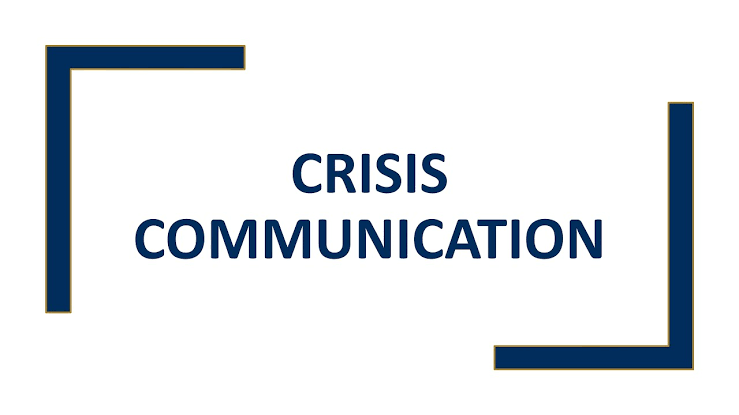Explore the critical role of Unique Value Proposition (UVP) in crisis communications and reputation management. Discover how a well-defined UVP can guide organizations in navigating challenges, engaging stakeholders, and reinforcing brand identity to build long-term trust and loyalty.
In the ever evolving digital world businesses face risks that can jeopardize their reputation and relationships with stakeholders. To safeguard their brand in times of adversity effective crisis communication and reputation management are essential. A key asset in navigating these challenges is the Unique Value Proposition (UVP). This concept outlines what sets a business apart and makes it valuable to its audience. It plays a role in how companies respond to crises and uphold their reputation.
Understanding Unique Value Proposition
A Unique Value Proposition (UVP) is a statement that clearly expresses the benefits and value a product or service brings to its intended audience. It distinguishes a company from its competitors by emphasizing what makes it special whether through features, customer service, brand principles or overall experience. The UVP isn't a marketing gimmick; it serves as a guiding principle for all messaging particularly in times of crisis when clarity and consistency are crucial.
Importance of UVP in Times of Crisis
In times of crisis organizations grapple with the need to uphold trust and credibility with their stakeholders. The UVP plays a role in these situations. It enables companies to communicate their values and commitments helping stakeholders understand why they should continue to trust and support the organization, in challenging circumstances. By conveying the UVP businesses can strengthen their brand image and reassure stakeholders of their commitment to providing value.
Crisis Communications Strategy and UVP
When a crisis occurs having a unique value proposition (UVP) can be crucial, for developing a crisis communication plan. Organizations can utilize their UVP to shape their messages and maintain consistency across platforms. This encompasses statements, press releases, updates and direct interactions with stakeholders. Incorporating the UVP into these communications serves as a reminder to audiences of the organizations dedication to its values and mission helping to mitigate potential harm to its reputation. For example if a tech company experiences a breach it can highlight its UVP in its messaging by emphasizing its commitment to security and transparency. By clearly outlining its values and the steps being taken to address the situation the company can reassure customers and stakeholders that their concerns are being taken seriously. This strategy not reinforces the brands identity but also builds trust, during difficult times.
Building a Narrative Around UVP
Effective communication during crises goes beyond sharing information; it involves telling a story. Organizations can utilize the Unique Value Proposition (UVP) to create a narrative that resonates with their audience. By incorporating the UVP into the crisis communication companies can portray themselves as proactive and responsible instead of reactive and defensive. This strategy allows organizations to take charge of the situation and show their commitment to resolving it.
For instance a food company dealing with a product recall can leverage its UVP to showcase its commitment to quality and safety. The narrative can emphasize the companys dedication to safeguarding its customers outlining steps being taken to address the issue and how these actions align with its values. This storytelling approach not informs stakeholders but also reinforces the companies brand identity and principles.
Boosting Engagement, Through UVP.
In times of crisis, it's crucial to engage stakeholders. The Unique Value Proposition (UVP) plays a role in promoting communication with stakeholders addressing their concerns and building a sense of community. By consistently highlighting the UVP in communications organizations can encourage feedback and discussions making stakeholders feel included in the problem solving process.
Moreover utilizing the UVP for stakeholder engagement can assist businesses in maintaining a relationship, with their audience even during challenging times. For instance a nonprofit facing funding cuts can underscore its UVP by emphasizing the impact of its programs and the value it brings to the community. By involving stakeholders through this perspective the organization can garner support and nurture a sense of shared purpose during tough periods.
The Influence of UVP on Reputation Management, Over the Long Term.
A well defined Unique Value Proposition not helps with handling crises but also plays a role, in managing reputation over the long term. When businesses effectively communicate their UVP during difficult times they can strengthen bonds with stakeholders leading to increased loyalty and trust as time goes on. Stakeholders are more inclined to forgive and support organizations that show transparency, accountability and a commitment to their values. Moreover companies that consistently share their UVP can improve their brand image setting themselves apart in the market. By aligning their crisis communication approaches with their UVP organizations can establish themselves as industry leaders even when facing challenges.
Conclusion
The significance of a Unique Value Proposition (UVP) in crisis communication and reputation management is paramount. It acts as a guiding principle for organizations to handle difficult situations while upholding trust and credibility with their stakeholders. By incorporating the UVP into crisis communication strategies organizations can create narratives, engage stakeholders effectively and strengthen their brand identity. In essence a clearly defined UVP not serves as a valuable tool during crises but also plays a role, in long term reputation management and building stakeholder loyalty. As businesses encounter challenges leveraging their UVP will be crucial, for coming out of crises stronger and more resilient.
